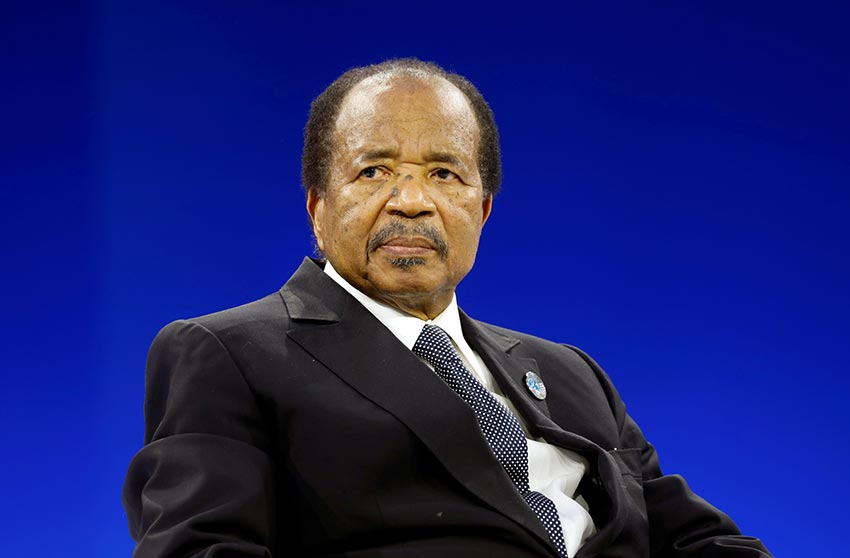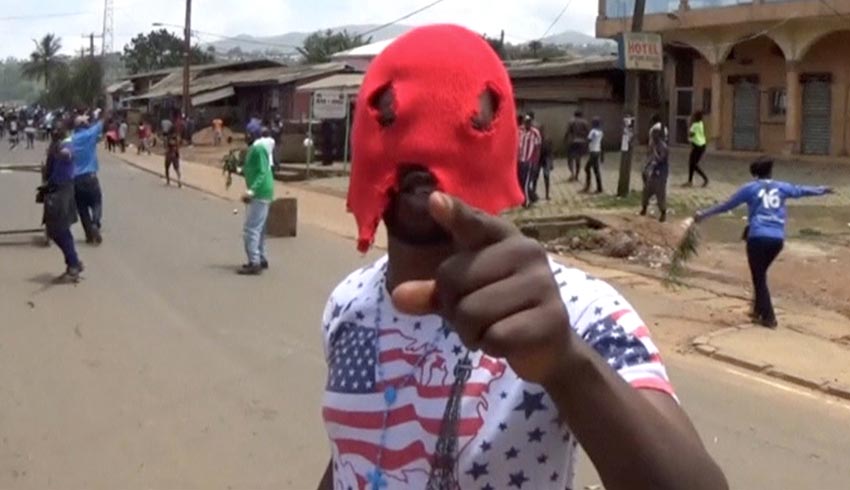The conflict in Cameroon is close to escalating, and possibly further fueling the instability in Central Africa, and unless the African Union becomes more proactive in resolving it, there could be chaos ahead. Gabriel Ngah Kiven and Cheryl Hendricks argue.
The violent conflict that erupted in the northwest and southwest regions of Cameroon in 2016 continues unabated. It was triggered by President Paul Biya’s repression of protests over the increasing influence of French in the English-speaking legal and educational institutions, and by the perceived marginalization of the country’s Anglophone regions.

Some Anglophones are demanding increased decentralization, while others are violently struggling for an independent state called “Ambazonia”. The conflict has had devastating consequences for the Anglophone regions. According to the Crisis Group, around 3,000 people have died and half a million have been displaced. One in three people in the Anglophone regions are estimated to be in need of humanitarian aid.
Attempts have been made, including the involvement of other countries, to resolve the crisis. But the conflict is conspicuously absent from the African Union’s Peace and Security Council, its decision-making body on the “prevention, management and resolution of conflicts”. This, despite the Council being mandated to “facilitate timely and efficient response to conflict and crisis situations in Africa”.
The reason for this, many believe, is that a major part of the struggle in Cameroon is separatist in character. Cameroon’s territorial integrity is therefore at stake. In 1963, the Organization of African Unity, predecessor to the African Union, adopted the principle of the inviolability of borders inherited from colonization.

Since then there has been little support for secessionist movements in Africa. Eritrea and South Sudan were able to become independent states and many African countries support Western Sahara’s quest for self-determination. But a host of others – including Biafra, Katanga, Bioko, Zanzibar, Darfur, Casamance, Somaliland – have not seen much support.
Many of Cameroon’s neighbors, and a few on the Peace and Security Council, face similar challenges and are, therefore, not sympathetic to this cause. Indeed the African Union chairperson, during his visit to President Biya in 2018 had reconfirmed the African Union’s “unwavering commitment to the unity and territorial integrity of Cameroon”.
But the African Union is vital to finding a sustainable solution to the conflict in Cameroon. It needs to overcome this difficulty, and step up its lackluster conflict management response.

For many years Cameroon was considered a haven of peace in Central Africa, one of the more unstable regions on the continent, with conflicts in the Democratic Republic of Congo, Central African Republic, Burundi and Chad.
The issues
There are a number of different issues that need to be simultaneously addressed in the management of the conflict in Cameroon. Firstly, the African Union and the United Nations need to coordinate their efforts in addressing the humanitarian needs of the refugees and displaced persons. And the African Union Commission on Human and Peoples Rights must investigate the many complaints of human rights abuses in Cameroon, and to take appropriate action. Secondly, the continental body needs to deploy its “Panel of the Wise” to determine how best to manage the conflict. Thirdly, it must also send a special envoy to the Anglophone region to implement a conflict management strategy that will lead to a sustainable peace agreement. Fourthly, it must settle the disputes over the right to self-determination through the appropriate UN structures.